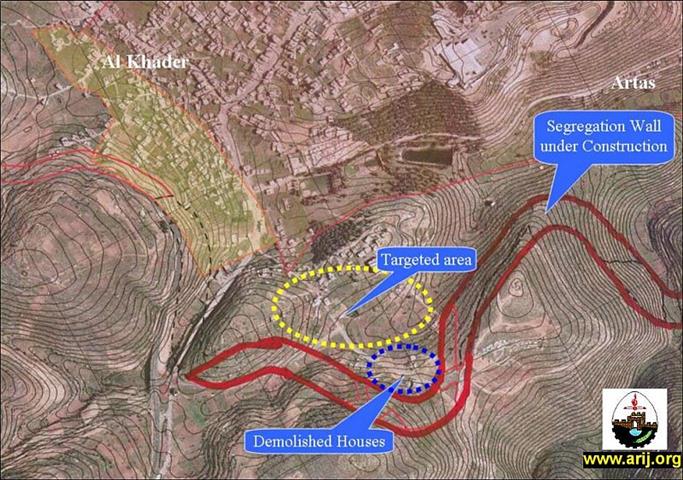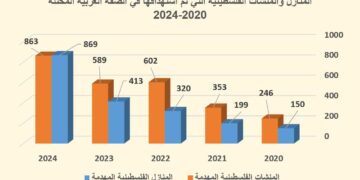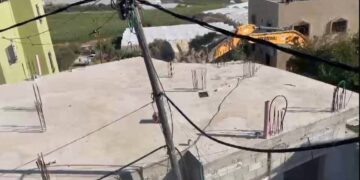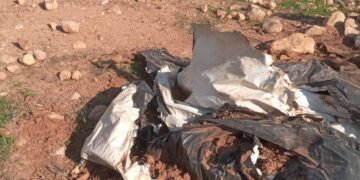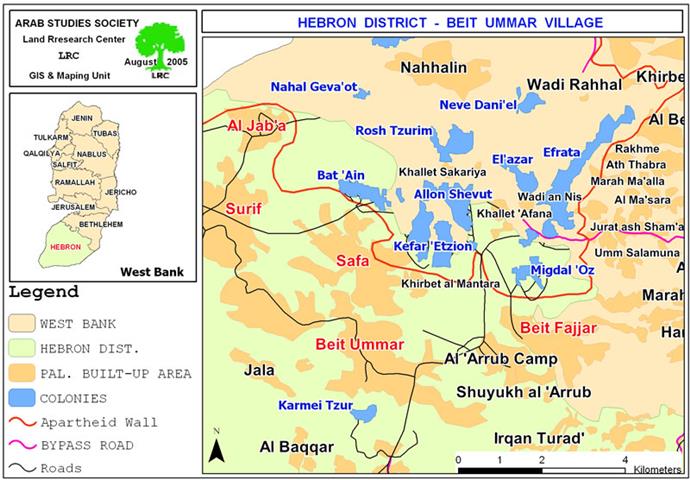By midday July 27, the Israeli bulldozers came to Um Al-Rukbeh neighborhood in Al-Khader village (southwest of Bethlehem city) with thundering sounds, crushing all kinds of cultivations standing in between their designated target; three simple houses accommodating 37 Palestinian lives. Naturally, the Israelis had their worn out argument to present with regard to the reason why the houses were demolished; yes it is their infamous allege 'building with no permission' even though the Israeli Army or the State of Israel for that matter had no jurisdiction over the urban planning of the occupied Palestinian territory (including East Jerusalem). Furthermore, it should be noted that the owners of the demolished houses has taken their case to the Israeli courts to annul the three years old demolition order and that no verdict has been reached yet. In addition, two of the three demolished houses had building permits from the Israeli Civil Administration, which did not do them any good when the Israeli Army's Caterpillar leveled the houses. Um Al-Rukbeh neighborhood has 20 other houses that fear similar fate as the owners have also received demolition orders from the Israeli Army for the same reason. See Map 1
Now for the truth,
Ever since the Israelis started building the Segregation Wall, they spared no chance to grab more Palestinian lands, which made Israel resort to the bypass road net system to define boundaries and set the scene for the Segregation Wall to erect especially that in many cases the route of the Segregation Wall was set to protect the bypass road. Just recently, a similar development took place near Azzoun and Jayyous villages near Qalqilyia district when the route of the Segregation Wall was set to secure a bypass road for Zofim settlements when in fact its only aim was to increase the land area of the settlement to build new neighborhood and an industrial zone. The same apply to what happened in Um Al-Rukbeh neighborhood except that the Israeli Army is planning to level down the entire neighborhood to complete construction of a bypass road for Efrat settlement and 12 other settlements from the Gush Etzion settlements bloc, which Israel plans to maintain within its jurisdiction under any peace agreement with Palestinians. The Segregation Wall will come in parallel with bypass road and cutoff Palestinian lands from its owners who will only have limited access to their lands under strict and obscuring conditions.
Is it legal for Israel to demolish Palestinian houses?
Israel's policy on house demolition (among other belligerent acts) is based on section 119 of the Emergency Defense Regulations of 1945 that grants the Israeli Army the authority to demolish any house of individuals directly involved in acts of viol
|
Israeli Defense Emergency Regulations Reg. 119 – HOUSE DEMOLITIONS OR SEALING, DESTRUCTIONS OF CROPS: empowers the government/military to destroy or seal private homes, or destroy other private property without trial or formal charges. |
The aforementioned Israeli policy violates two distinct articles of the Fourth Geneva Convention that clearly render any destruction of property as illegal under international law, unless this act is crucial for military purposes. The Fourth Geneva Convention also utterly renounces any form of collective punishments. (Scroll down to see articles 33 & 53 of the convention).
The fact that the Israeli Army is the actual ruler of the occupied Palestinian territory endorses the state of oppression imposed on the Palestinian people who are victimized by the suffering consequences such as land confiscation and house destruction. Israeli settlements and settlers illegally exist in the occupied Palestinian territory and the Segregation Wall will not provide security for the Israelis if it is built on the Palestinian welfare. Building the Segregation Wall in the heart of the West Bank resulted in the demolition of hundreds of houses along the route of the Wall, the three houses demolished in Al-Khader were an example of such unjust and illegal demolitions.
|
The Fourth Geneva Convention (August 12, 1949): CONVENTION (IV) RELATIVE TO THE PROTECTION OF CIVILIAN PERSONS IN TIME OF WAR – Article 33: No protected person may be punished for an offence he or she has not personally committed. Collective penalties and likewise all measures of intimidation or of terrorism are prohibited. – Article 53: Any destruction by the Occupying Power of real or personal property belonging individually or collectively to private persons, or to the State, or to other public authorities, or to social or cooperative organizations, is prohibited, except where such destruction is rendered absolutely necessary by military operations. |
Prepared by:
The Applied Research Institute – Jerusalem


